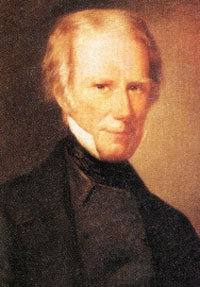Class 1 Class 1 U.S. Senators belong to the electoral cycle that has recently been contested in 2000, 2006, 2012, 2018. The next election will be in 2024. | C
o
n
g
r
e
s
s | Class 3 Class 3 U.S. Senators belong to the electoral cycle that has recently been contested in 1998, 2004, 2010, and 2016. The next election will be in 2022. |
|---|
| # | Senator | Party | Years in office | Electoral history | T
e
r
m | T
e
r
m | Electoral history | Years in office | Party | Senator | # |
|---|
| 1 | 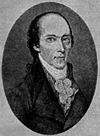
William Maclay | Anti-Admin. | March 4, 1789 –
March 3, 1791 | Elected in 1788.
Lost re-election. | 1 | 1st | 1 | Elected in 1788.
Retired. | March 4, 1789 –
March 3, 1795 | Pro-
Admin. | 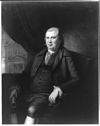
Robert Morris | 1 |
|---|
| Vacant | March 4, 1791 –
December 1, 1793 | Legislature failed to elect due to a disagreement on election procedure. | 2 | 2nd |
| 2 | 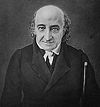
Albert Gallatin | Anti-Admin. | February 28, 1793 –
February 28, 1794 | Elected to finish the vacant term.
Election voided for failure to meet the residency requirements for eligibility to the office. |
|---|
| 3rd |
| Vacant | March 1, 1794 –
April 23, 1794 | |
| 3 | 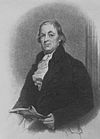
James Ross | Pro-
Admin. | April 24, 1794 –
March 3, 1803 | Elected to finish Gallatin's term. |
|---|
| Federalist | 4th | 2 | Elected in 1795.
Retired. | March 4, 1795 –
March 3, 1801 | Federalist | 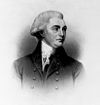
William Bingham | 2 |
|---|
Re-elected in 1797.
Retired. | 3 | 5th |
| 6th |
| 7th | 3 | Elected in 1801.
Resigned to become Supervisor of Revenue of Pennsylvania. | March 4, 1801 –
June 30, 1801 | Democratic-
Republican | 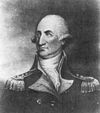
J. Peter G. Muhlenberg | 3 |
|---|
| | June 30, 1801 –
December 17, 1801 | Vacant |
Elected to finish Muhlenberg's term.
Retired. | December 17, 1801 –
March 3, 1807 | Democratic-
Republican | 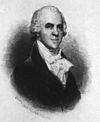
George Logan | 4 |
|---|
| 4 | Samuel Maclay | Democratic-
Republican | March 4, 1803 –
January 4, 1809 | Elected in 1802.
Resigned, believing he would lose re-election. | 4 | 8th |
|---|
| 9th |
| 10th | 4 | Elected in 1806.
Retired. | March 4, 1807 –
March 3, 1813 | Democratic-
Republican | 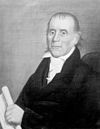
Andrew Gregg | 5 |
|---|
| Vacant | January 4, 1809 –
January 9, 1809 | Vacant |
| 5 | 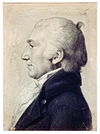
Michael Leib | Democratic-
Republican | January 9, 1809 –
February 14, 1814 | Elected January 9, 1809 to finish Maclay's term, having already won election to the next term. [1] |
|---|
Elected on December 13, 1808. [2]
Resigned to become Postmaster of Philadelphia. | 5 | 11th |
| 12th |
| 13th | 5 | Elected on December 8, 1812. [3]
Retired. | March 4, 1813 –
March 3, 1819 | Democratic-
Republican | 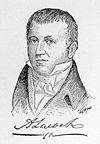
Abner Lacock | 6 |
|---|
| Vacant | February 14, 1814 –
February 24, 1814 | |
| 6 | 
Jonathan Roberts | Democratic-
Republican | February 24, 1814 –
March 3, 1821 | Elected to finish Leib's term. |
|---|
| Re-elected in late 1814. | 6 | 14th |
| 15th |
| 16th | 6 | Elected in 1818.
Retired. | March 4, 1819 –
March 3, 1825 | Democratic-
Republican | 
Walter Lowrie | 7 |
|---|
| Vacant | March 4, 1821 –
December 10, 1821 | Legislature failed to elect. | 7 | 17th |
| 7 | 
William Findlay | Democratic-
Republican | December 10, 1821 –
March 3, 1827 | Elected late in 1821.
Retired. |
|---|
Jackson
Republican | 18th | Crawford
Republican |
| Jacksonian | 19th | 7 | Elected in 1825.
Lost re-election. | March 4, 1825 –
March 3, 1831 | Anti-Jacksonian | 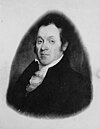
William Marks | 8 |
|---|
| 8 | 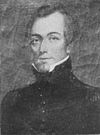
Isaac D. Barnard | Jacksonian | March 4, 1827 –
December 6, 1831 | Elected in 1826.
Resigned to due ill health. | 8 | 20th |
|---|
| 21st |
| 22nd | 8 | Elected in 1830.
Resigned to become U.S. Minister to Russia. | March 4, 1831 –
June 30, 1834 | Jacksonian | 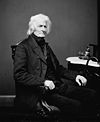
William Wilkins | 9 |
|---|
| Vacant | December 6, 1831 –
December 13, 1831 | |
| 9 | 
George Mifflin Dallas | Jacksonian | December 13, 1831 –
March 3, 1833 | Elected to finish Barnard's term.
Retired. |
|---|
| Vacant | March 4, 1833 –
December 7, 1833 | Legislature failed to elect. | 9 | 23rd |
| 10 | 
Samuel McKean | Jacksonian | December 7, 1833 –
March 3, 1839 | Elected late in 1833. |
|---|
| | June 30, 1834 –
December 6, 1834 | Vacant |
| Elected to finish Wilkins's term. | December 6, 1834 –
March 5, 1845 | Jacksonian | 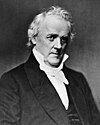
James Buchanan | 10 |
|---|
| 24th |
| Democratic | 25th | 9 | Re-elected in 1836. | Democratic |
| Vacant | March 4, 1839 –
January 14, 1840 | Legislature failed to elect. | 10 | 26th |
| 11 | 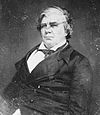
Daniel Sturgeon | Democratic | January 14, 1840 –
March 3, 1851 | Elected late in 1840. |
|---|
| 27th |
| 28th | 10 | Re-elected in 1843.
Resigned to become U.S. Secretary of State. |
Re-elected in 1845.
Retired. | 11 | 29th |
| | March 5, 1845 –
March 13, 1845 | Vacant |
Elected in 1845.
Retired. | March 13, 1845 –
March 3, 1849 | Democratic | 
Simon Cameron | 11 |
|---|
| 30th |
| 31st | 11 | Elected in 1849. | March 4, 1849 –
March 3, 1855 | Whig | 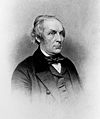
James Cooper | 12 |
|---|
| 12 | 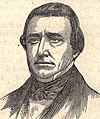
Richard Brodhead | Democratic | March 4, 1851 –
March 3, 1857 | Elected in 1851. | 12 | 32nd |
|---|
| 33rd |
| 34th | 12 | Legislature failed to elect in 1856. | March 4, 1855 –
January 14, 1856 | Vacant |
Elected late in 1856.
Retired. | January 14, 1856 –
March 3, 1861 | Democratic | 
William Bigler | 13 |
|---|
| 13 | 
Simon Cameron | Republican | March 4, 1857 –
March 3, 1861 | Elected in 1857.
Resigned to become U.S. Secretary of War. | 13 | 35th |
|---|
| 36th |
| Vacant | March 4, 1861 –
March 14, 1861 | | 37th | 13 | Elected in 1861.
Lost re-election. | March 4, 1861 –
March 3, 1867 | Republican | 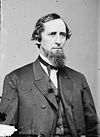
Edgar Cowan | 14 |
|---|
| 14 | 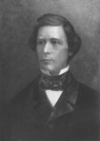
David Wilmot | Republican | March 14, 1861 –
March 3, 1863 | Elected in 1861 to finish Cameron's term.
Retired. |
|---|
| 15 | 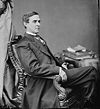
Charles R. Buckalew | Democratic | March 4, 1863 –
March 3, 1869 | Elected in 1863. | 14 | 38th |
|---|
| 39th |
| 40th | 14 | Elected in 1867. | March 4, 1867 –
March 12, 1877 | Republican | 
Simon Cameron | 15 |
|---|
| 16 | 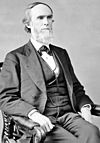
John Scott | Republican | March 4, 1869 –
March 3, 1875 | Elected in 1869.
Retired. | 15 | 41st |
|---|
| 42nd |
| 43rd | 15 | Re-elected in 1873.
Resigned. |
| 17 | 
William A. Wallace | Democratic | March 4, 1875 –
March 3, 1881 | Elected in early 1875.
Lost re-election. | 16 | 44th |
|---|
| 45th |
| | March 12, 1877 –
March 20, 1877 | Vacant |
| Elected in 1877 to finish his father's term. | March 20, 1877 –
March 3, 1897 | Republican | 
J. Donald Cameron | 16 |
|---|
| 46th | 16 | Re-elected in 1879. |
| 18 | 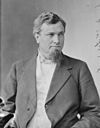
John I. Mitchell | Republican | March 4, 1881 –
March 3, 1887 | Elected in early 1881. | 17 | 47th |
|---|
| 48th |
| 49th | 17 | Re-elected in 1885. |
| 19 | 
Matthew S. Quay | Republican | March 4, 1887 –
March 3, 1899 | Elected in early 1887. | 18 | 50th |
|---|
| 51st |
| 52nd | 18 | Re-elected in 1891.
Retired. |
Re-elected January 17, 1893.
Legislature failed to re-elect. | 19 | 53rd |
| 54th |
| 55th | 19 | Elected January 19, 1897. | March 4, 1897 –
December 31, 1921 | Republican | 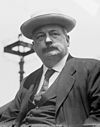
Boies Penrose | 17 |
|---|
| Vacant | March 4, 1899 –
January 16, 1901 | Quay was appointed to continue the term, but the Senate declared him not entitled to the seat | 20 | 56th |

Matthew S. Quay | Republican | January 16, 1901 –
May 28, 1904 | Elected late in 1901.
Died. |
| 57th |
| 58th | 20 | Re-elected on January 20, 1903. |
| 20 | 
Philander C. Knox | Republican | June 10, 1904 –
March 3, 1909 | Appointed to continue Quay's term.
Elected on January 17, 1905 to finish Quay's term. |
|---|
Re-elected on January 18, 1905. [5]
Resigned to become U.S. Secretary of State. | 21 | 59th |
| 60th |
| Vacant | March 4, 1909 –
March 17, 1909 | | 61st | 21 | Re-elected January 19, 1909. |
| 21 | 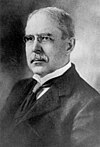
George T. Oliver | Republican | March 17, 1909 –
March 3, 1917 | Elected to finish Knox's term |
|---|
Re-elected January 11, 1911.
Retired. | 22 | 62nd |
| 63rd |
| 64th | 22 | Re-elected in 1914. |
| 22 | 
Philander C. Knox | Republican | March 4, 1917 –
October 12, 1921 | Elected in 1916.
Died. | 23 | 65th |
|---|
| 66th |
| 67th | 23 | Re-elected in 1920.
Died. |
| Vacant | October 12, 1921 –
October 24, 1921 | |
| 23 | 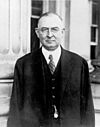
William E. Crow | Republican | October 24, 1921 –
August 2, 1922 | Appointed to continue Knox's term.
Died. |
|---|
| | December 31, 1921 –
January 9, 1922 | Vacant |
Appointed to continue Penrose's term.
Elected to finish Penrose's term.
Lost renomination. | January 9, 1922 –
March 3, 1927 | Republican | 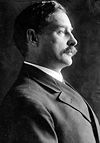
George Wharton Pepper | 18 |
|---|
| Vacant | August 2, 1922 –
August 8, 1922 | |
| 24 | 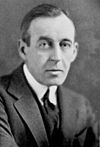
David A. Reed | Republican | August 8, 1922 –
January 3, 1935 | Appointed to continue Knox's term.
Elected to finish Knox's term. |
|---|
| Elected in 1922. | 24 | 68th |
| 69th |
| 70th | 24 | William S. Vare (R) was elected in 1926, but the Governor refused to certify the election and the Senate refused to qualify him. He was formally unseated December 9, 1929. | March 4, 1927 –
December 9, 1929 | Vacant |
Re-elected in 1928.
Lost re-election. | 25 | 71st |
Appointed to continue Vare's term.
Lost nomination to finish Vare's term. | December 11, 1929 –
December 1, 1930 | Republican | 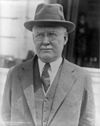
Joseph R. Grundy | 19 |
|---|
| Elected November 4, 1930 to finish Vare's term | December 2, 1930 –
January 3, 1945 | Republican | 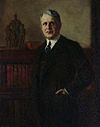
James J. Davis | 20 |
|---|
| 72nd |
| 73rd | 25 | Re-elected in 1932. |
| 25 | 
Joseph F. Guffey | Democratic | January 3, 1935 –
January 3, 1947 | Elected in 1934. | 26 | 74th |
|---|
| 75th |
| 76th | 26 | Re-elected in 1938.
Lost re-election. |
Re-elected in 1940.
Lost re-election. | 27 | 77th |
| 78th |
| 79th | 27 | Elected in 1944.
Lost re-election. | January 3, 1945 –
January 3, 1951 | Democratic | 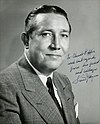
Francis J. Myers | 21 |
|---|
| 26 | 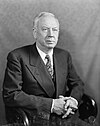
Edward Martin | Republican | January 3, 1947 –
January 3, 1959 | Elected in 1946. | 28 | 80th |
|---|
| 81st |
| 82nd | 28 | Elected in 1950.
Lost re-election. | January 3, 1951 –
January 3, 1957 | Republican | 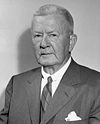
James H. Duff | 22 |
|---|
Re-elected in 1952.
Retired. | 29 | 83rd |
| 84th |
| 85th | 29 | Elected in 1956. | January 3, 1957 –
January 3, 1969 | Democratic | 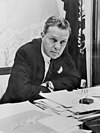
Joseph S. Clark | 23 |
|---|
| 27 | 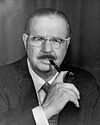
Hugh Scott | Republican | January 3, 1959 –
January 3, 1977 | Elected in 1958. | 30 | 86th |
|---|
| 87th |
| 88th | 30 | Re-elected in 1962.
Lost re-election. |
| Re-elected in 1964. | 31 | 89th |
| 90th |
| 91st | 31 | Elected in 1968. | January 3, 1969 –
January 3, 1981 | Republican | 
Richard S. Schweiker | 24 |
|---|
Re-elected in 1970.
Retired. | 32 | 92nd |
| 93rd |
| 94th | 32 | Re-elected in 1974.
Did not run for re-election. |
| 28 | 
John Heinz | Republican | January 3, 1977 –
April 4, 1991 | Elected in 1976. | 33 | 95th |
|---|
| 96th |
| 97th | 33 | Elected in 1980. | January 3, 1981 –
April 28, 2009 | Republican | 
Arlen Specter | 25 |
|---|
| Re-elected in 1982. | 34 | 98th |
| 99th |
| 100th | 34 | Re-elected in 1986. |
Re-elected in 1988.
Died. | 35 | 101st |
| 102nd |
| Vacant | April 4, 1991 –
May 9, 1991 | |
| 29 | 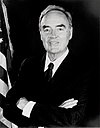
Harris Wofford | Democratic | May 9, 1991 –
January 3, 1995 | Appointed to continue Heinz's term.
Elected to finish Heinz's term.
Lost re-election. |
|---|
| 103rd | 35 | Re-elected in 1992. |
| 30 | 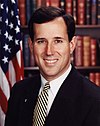
Rick Santorum | Republican | January 3, 1995 –
January 3, 2007 | Elected in 1994. | 36 | 104th |
|---|
| 105th |
| 106th | 36 | Re-elected in 1998. |
Re-elected in 2000.
Lost re-election. | 37 | 107th |
| 108th |
| 109th | 37 | Re-elected in 2004.
Lost renomination. |
| 31 | 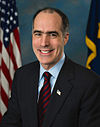
Bob Casey Jr. | Democratic | January 3, 2007 –
Present | Elected in 2006. | 38 | 110th |
|---|
| 111th |
April 28, 2009 –
January 3, 2011 | Democratic |
| 112th | 38 | Elected in 2010. | January 3, 2011 –
Present | Republican | 
Pat Toomey | 26 |
|---|
| Re-elected in 2012. | 39 | 113th |
| 114th |
| 115th | 39 | Re-elected in 2016. |
| Re-elected in 2018. | 40 | 116th |
| 117th |
| 118th | 41 | To be determined in the 2022 election. |
| # | Senator | Party | Years in office | Electoral history | T
e
r
m | | T
e
r
m | Electoral history | Years in office | Party | Senator | # |
|---|
| Class 1 | Class 3 |
|---|




























































